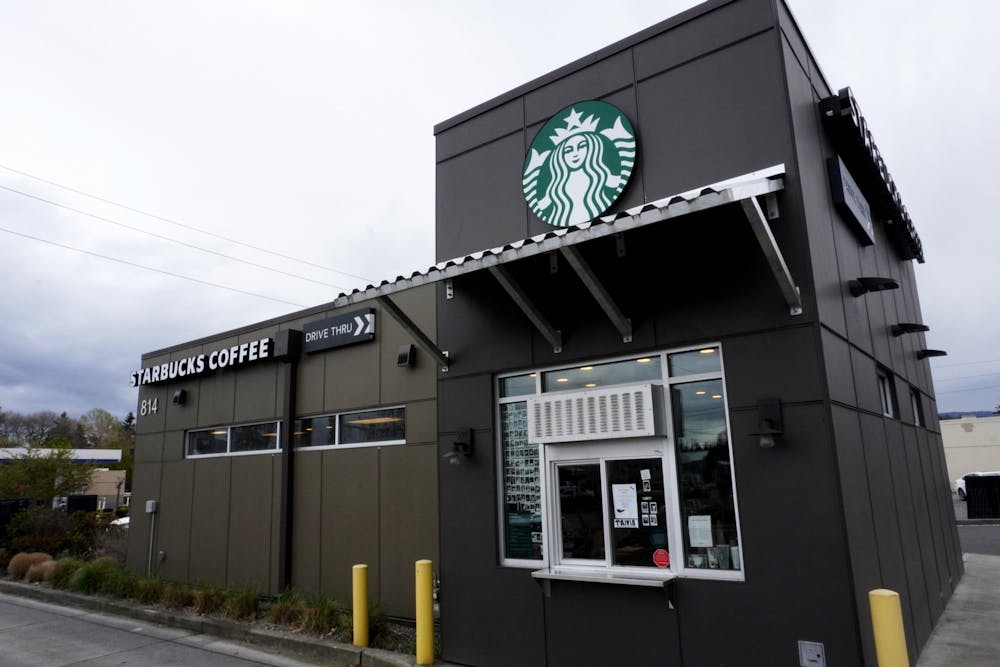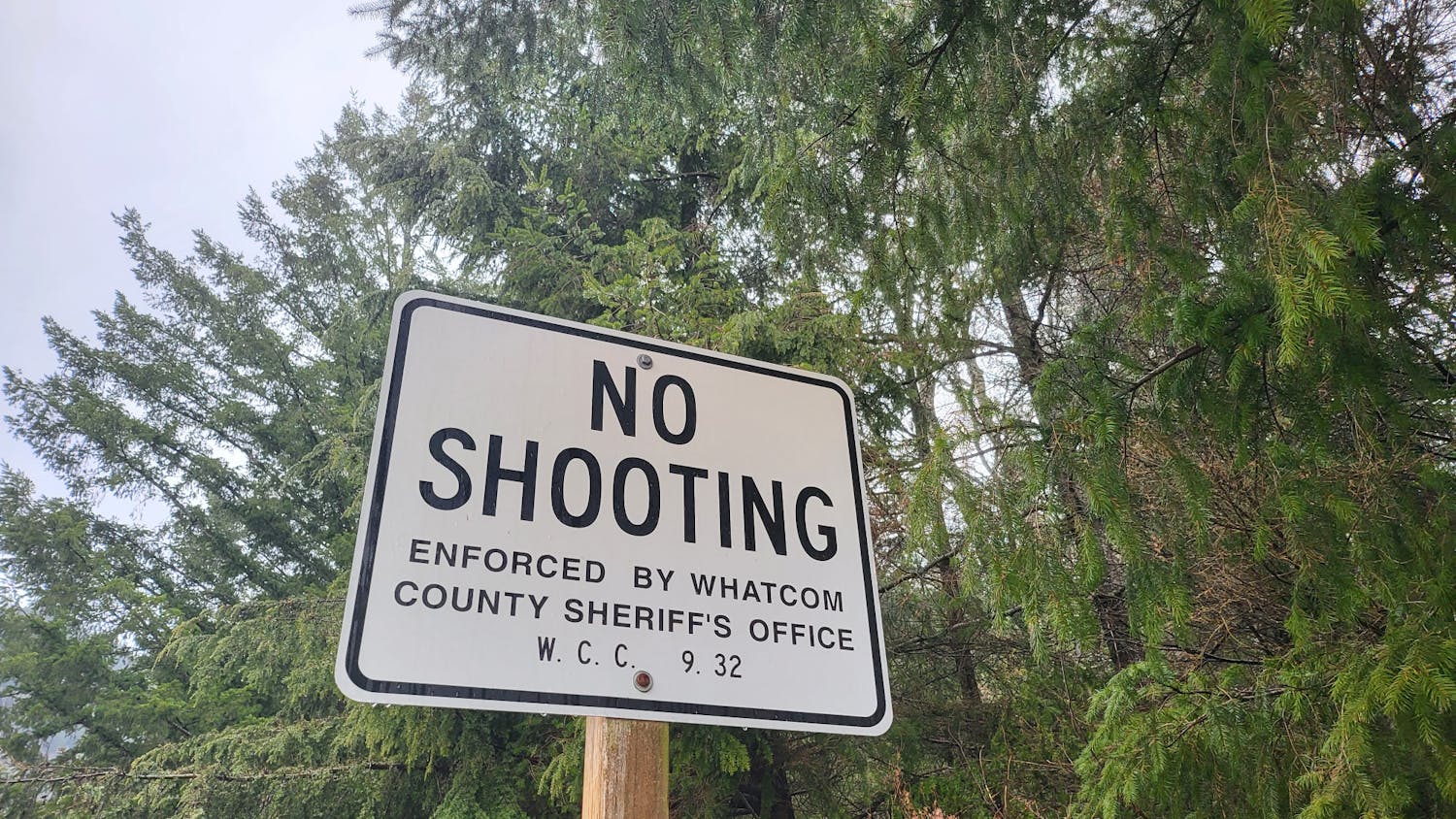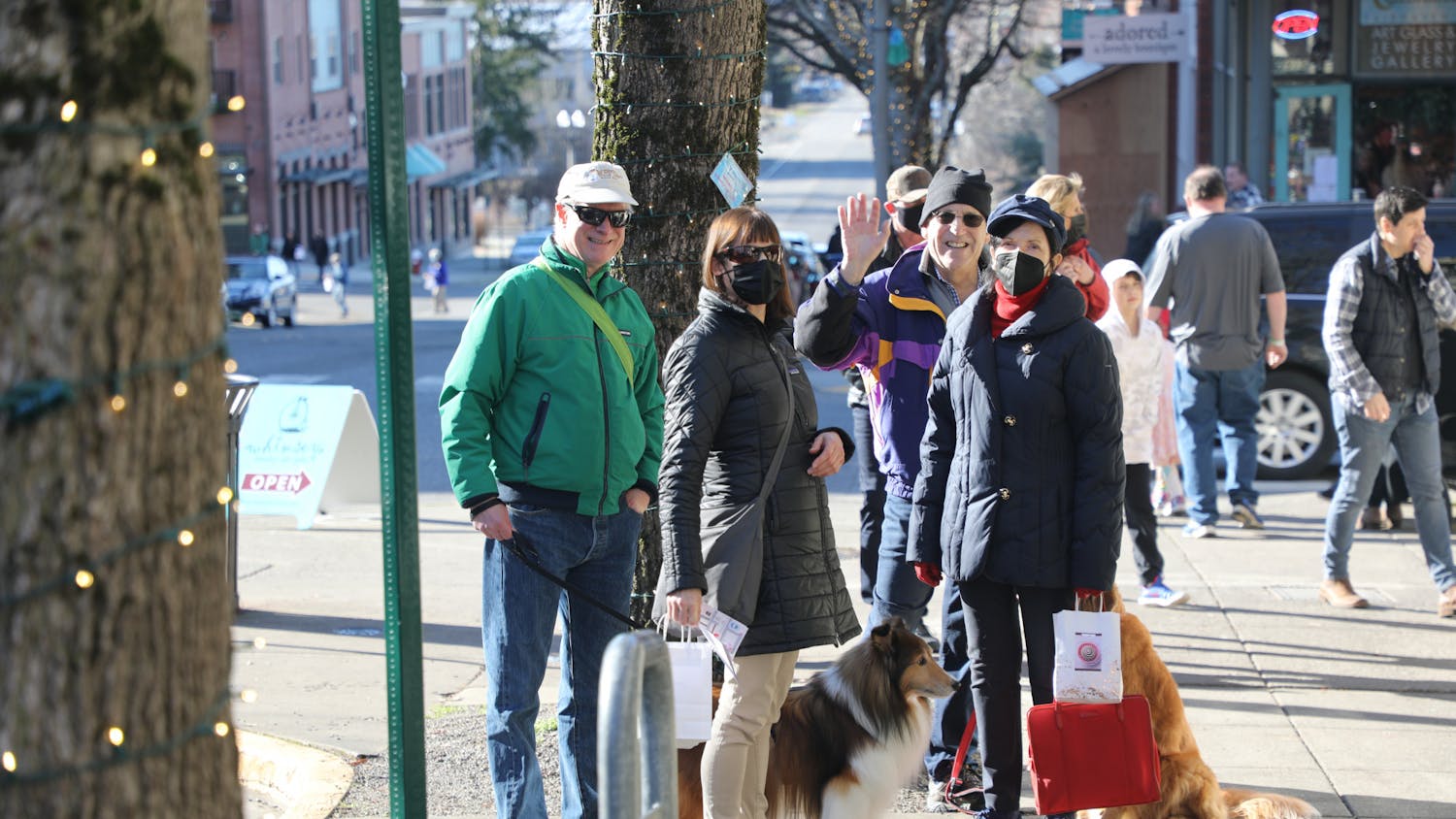Starbucks employees’ nationwide wave of labor solidarity has reached Bellingham. The drive-thru location at Iowa and King Streets filed its letter of intent to hold an election on whether to unionize on April 15. If successful, they will join dozens of other unionized locations across the country.
Some 300 Starbucks locations have filed for unionization under Workers United, which represents about 85,000 workers in the United States and Canada, since December 2021. Alex Riccio, an organizer for Workers United active with the campaign, said Starbucks partners want a more equitable workplace where their interests are protected.
“Starbucks workers have been abundantly clear in their reasons for organizing unions at their stores, including chronic understaffing, harassment from management and customers, poor health and safety standards,” Riccio said. “The primary motivation is that workers believe their workplaces should be more democratic and they deserve to have a real voice in the decisions being made that affect their lives.”
The sentiment has been reflected by employees at the Iowa-King location, where enthusiasm for the union is high.
“We’re really just looking to advocate for ourselves and our pay and making sure we have a voice when anything comes up,” said Hailey Cribbs, a barista at the Iowa-King drive-thru.
She cited reduced hours and benefits, and a lack of communication with upper management as motivating her support to unionize.
“We’re trying to make sure we get enough hours for benefits, health coverage and online ASU [Arizona State University],” Cribbs said. Starbucks’ allows eligible employees to earn college credit through ASU with complete tuition coverage, one of the company’s oft-advertised benefits.
“We went through the pandemic with a manager who was dual-managing and we no longer felt the support in the store. We’re really just looking to advocate for ourselves and our pay, making sure we have a voice when anything comes up.”
With a union, Butler believes the employees would have a stronger voice.
“I think we really just want to have a larger voice in the workplace, be able to self-advocate,” said Shannon Butler, a barista active in the union campaign. “[The union] gives us more of a voice to express what we want. We get to negotiate our own contract. They can accept or deny whatever parts we propose, but it gets rid of gates that are put up when we have concerns.”
Both Butler and Cribbs stated their colleagues had been discussing unionizing for several months, but it was the wave of successful campaigns elsewhere in the country that spurned them to action.
“A few months ago things really took off nationwide, and then we thought there’d be the support to get going on this,” Cribbs said.
So far, Starbucks’ corporate upper management has been less than receptive, with interim CEO Howard Schultz blasting the effort as “some outside force that’s going to dictate or disrupt who we are and what we do” in a leaked video call obtained by More Perfect Union.
“Predictably, as has been well documented and confirmed by the National Labor Relations Board, Starbucks corporate at the direction of Howard Schultz has been committing illegal acts of retaliation against workers for exercising their basic rights to organize,” Riccio said.
On April 22, the National Labor Relations Board sued Starbucks in federal court for unfair practices and labor violations, citing the firing of three union organizers at its stores.
“[Corporate] says they’re neutral but the response to other stores says otherwise,” Butler said. “A bunch of partners in Memphis got fired, they gave different reasons but it seems too much of a coincidence. When we were in the beginning stages of unionizing, we had to keep it on the down-low because of that fear.”
Hart Hodges, director of Western's Center for Economic and Business Research, said the hostile response indicates a disconnect between Starbucks’ corporate leaders and the majority of its employees.
“The top earners have a particular view about freedoms,” Hodges said. “They [think they] should be free to make management decisions and workers are free to take a job or not. They haven’t had to think much beyond that because they’ve been able to fill all vacancies without having to pay a lot in wages or benefits. They have not thought about who has captured the benefits of trade or automation and who has paid the cost.”
The subject of this emerging, COVID-era labor movement differentiates it from historical precedents, Hodges said.
“The push for unionization and just more open discussions about working conditions is the same as in the past, except we’re not used to seeing such things in the service sector,” Hodges said. “We always thought about unions at manufacturing plants and the trades. Now we are seeing people at Amazon warehouses and Starbucks [stores].”
By Butler and Cribbs’ estimation, unionizing isn’t a zero-sum game for Starbucks corporate. On the contrary, Cribbs believes it's a mutually-beneficial outcome.
“Allowing us to have a larger say in the day-to-day work experience is going to benefit them in the end,” Cribbs said. “We’ll be less overworked, we’ll be better paid, and we’ll feel like we’re really able to live off this job. I think that would heighten the experience for customers as well. We’re hoping to see them respect our decision to do this.”
Butler pushed back against Schultz’s hostile characterization.
“Howard’s called it an assault on Starbucks, that’s not what we’re trying to do, we just wanna have our concerns heard,” Butler said.
Despite the uphill battle, Butler and Cribbs feel supported by the community, and are confident in the outcome of the election.
“We have already gathered a lot of support in our store. Everyone is pretty set on how they want to vote,” Butler said.
Cribbs highlighted the supportive comments from customers.
“Our customers have been really amazing, we’ve got some good people coming in to support us,” Cribbs said.“I think that we have a lot of support from our co-workers, and making sure that everyone feels supported and included in this process. It’s been great to have so much support from the community. I’m hoping for a positive outcome, I think it’s gonna be good.”
Troy Schulz (he/him) is a city news reporter at The Front. He studies news/editorial journalism. He has previously written for Zenger News and WhatCulture.
He can be reached at troyschulz.thefront@gmail.com.






